How Do We Test in Science During 5E Evaluate?
During 5E Evaluate, it is time to test in science. What have students learned? This is a very important part of instruction and learning. You need to know what your students are understanding and learning. This guides your instruction and leads them to the knowledge you expect them to learn. You must ask the right questions and choose the right assessment for your unit.
In This Post
Formative assessments have been used throughout your unit, and now it’s time for the summative assessment. We are discussing what Evaluate in the 5E model consists of and the types of assessments you can use to test in science. I will give examples of objective and subjective assessments.
Be sure you’ve also downloaded your guide “7 Daily Must-Do Routines to Run Your Science Classroom like a Pro”. This is important for every step during your 5E lesson and your entire day.

What is 5E and Evaluate?
The 5E Model is perfect to use when planning your Science units. There are 5 steps that you go through in sequence- Engage, Explore, Explain, Elaborate, and Evaluate. You can read an overview on this blog post. I’ll include links to all of the blog posts at the end.
Now that you have gone through the first 4 E’s, it’s time to evaluate. Well, you’ve actually evaluated your students throughout each step using formative assessments when you observed what they are learning, gave them feedback, and cleared up any misconceptions.
But when you reach the end of your unit, it’s time for the summative assessment, that final test in sciencee. You are evaluating what your students have learned using an assessment of your choice. There are many different ways to assess what your students have learned during your Science unit.

Assessments in Science
There are two main types of assessments when you evaluate your students- objective and subjective assessments. When creating your assessments, be sure to base them off the standards. Personally, I prefer to create my assessments at the beginning of my unit, rather than wait until the end. It should guide your instruction to ensure students are learning what you expect them to learn.
You want to be sure to ask questions that make your students think, but don’t confuse them. Your wording is very important.
Science Test
Objective assessments tend to be the most common when evaluating students’ knowledge at the end of the unit. An objective assessment is typically a quiz or test with questions about the unit. The students will choose a response from a list of choices (multiple choice), determine statements that are true or false, or matching terms.
How to Assess Students Without Tests
Subjective assessments are open-ended or student created. Common types of subjective assessments include projects, short answer responses, essays or reports, or student-conducted lab investigations. When grading, there is a rubric or checklist for subjective assessments.
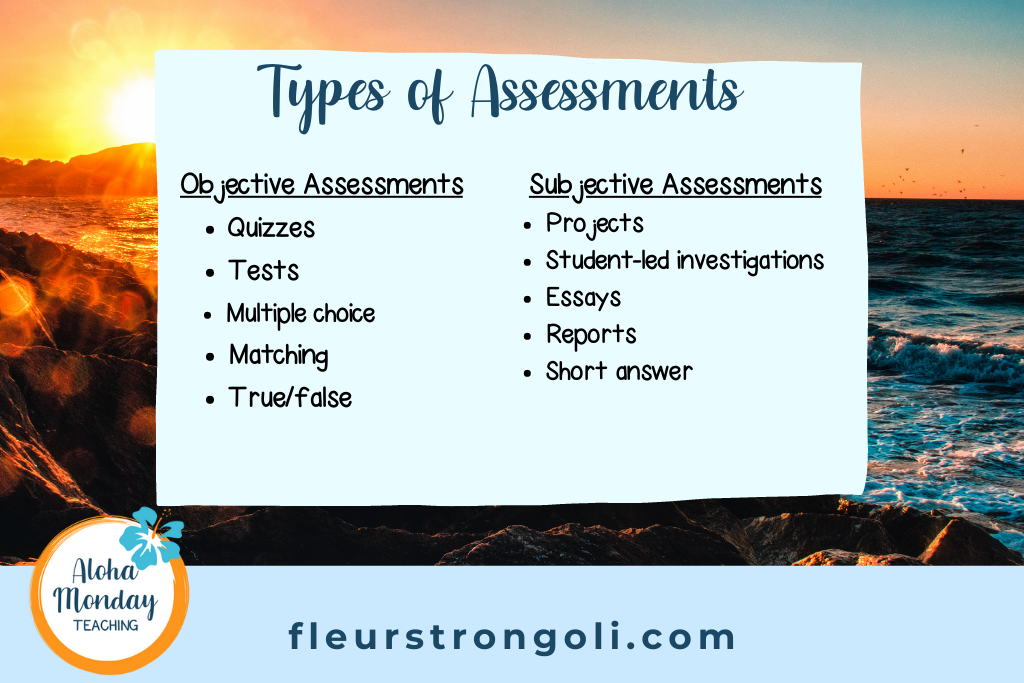
How often should students be assessed?
Like I mentioned earlier, you have likely used formative assessments throughout your unit. This is encouraged, because you are observing what your students are learning. Summative assessments are at the end of your unit. You should assess your students after each unit. You could also assess students after each concept, then do a cumulative assessment at the end of the unit. In my classroom, I average at least two summative assessments each quarter.
Wrap Up
We talked about Evaluate and what happens in this step. and how important it is so you can guide your instruction and know what your students are learning. You’ve assessed your students throughout your unit using formative assessments, which helped guide your instruction and cleared up misconceptions. And we discussed two types of summative assessments you can use- objective and subjective.
Read More
5 Daily Must-Do Routines to Run Your Science Classroom Like a Pro
How Do I Make Lesson Planning of Science Simple and Focused? (Overview)
What are Quick and Easy Lesson Plan Hook Ideas for Science? (5E Engage)
5E Explore: 4 Types of Fun Activities and Science Experiments for Middle Schoolers
3 Must-Haves for a Successful Explain 5E Model
What Are Some Science Activities to Use During Elaborate 5E?
Your Turn
When planning your next unit, create your assessment first. What will you choose- objective or subjective, or a combination of both? If you regularly give objective assessments (science quizzes or tests), I challenge you to try something new to continue your growth as a teacher, and to push your students to higher standards.
Comment below or go to Facebook to share!
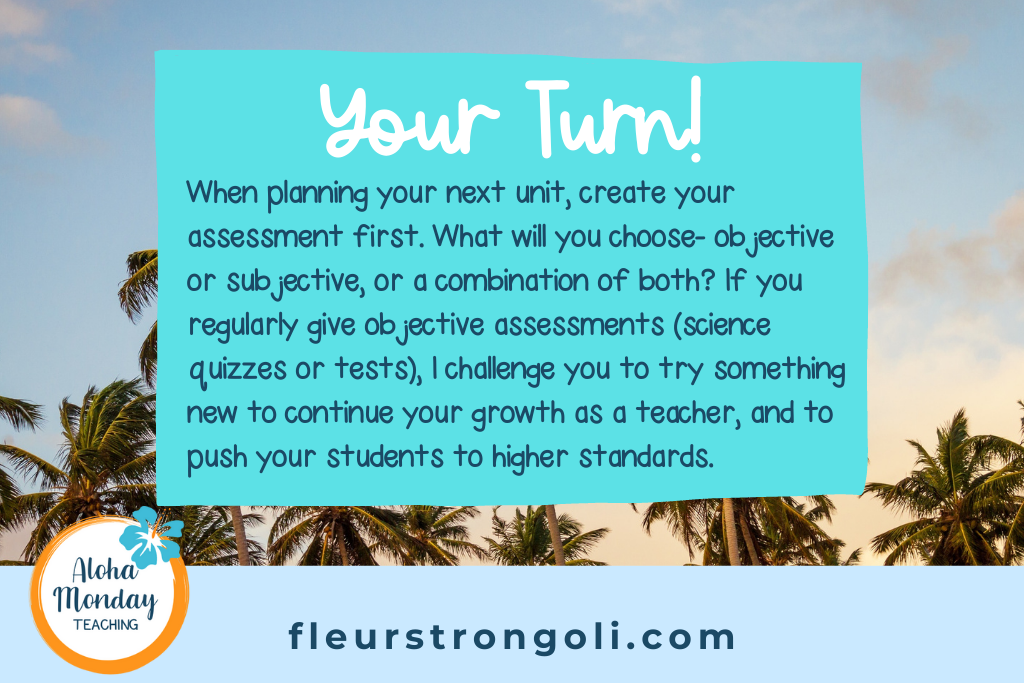

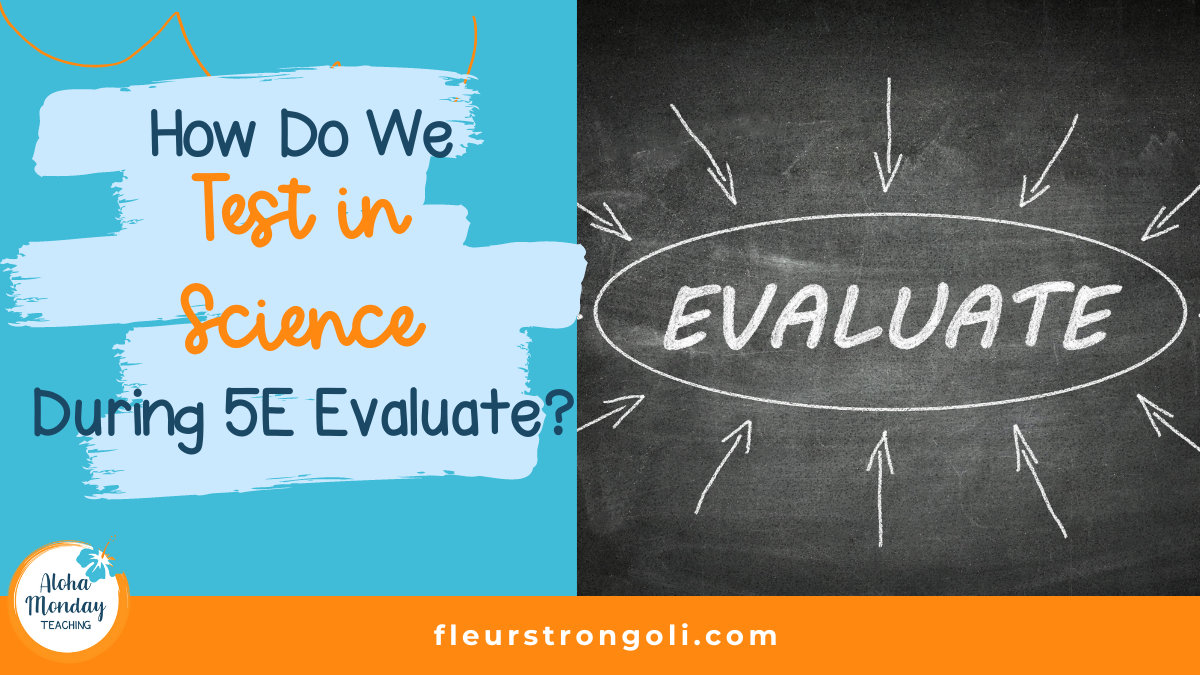

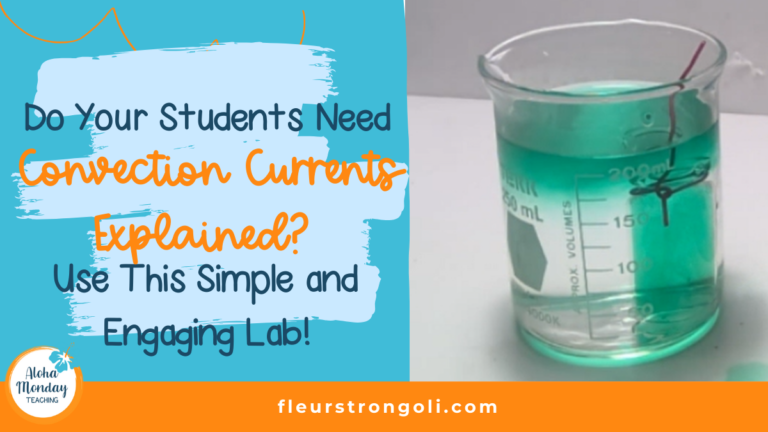

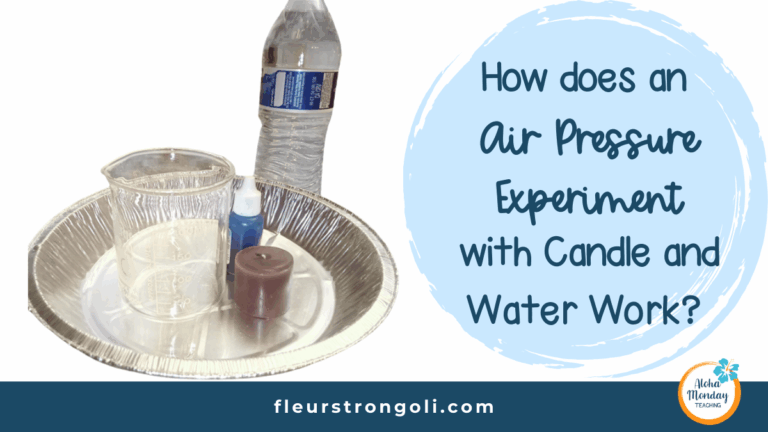


2 Comments